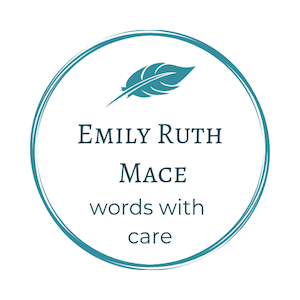When you’re applying to graduate school, it’s important to keep your admissions essay focused on the future. But what does it mean to be “future-focused”? It means making sure that everything you say has to do with what you want to do in the future! In this blog post, we’ll walk through what this looks like in the different parts of your essay.
Your Introduction
In this first paragraph, you’re setting up why you want to attend a particular school. If you start your essay with a story or vignette, that comes from the past, but you also want to make sure that what you’re saying about your past points to your future. Perhaps you had a meaningful experience in an interaction that was similar to the type of therapist-client relationship you hope to have after you finish your graduate program. Write about it in a way that makes it relevant to your future goals!

Your Background
Here’s where being future-focused in your graduate admissions essays gets tricky. An applicant needs to tell the admissions committee why they’re interested in a particular program and a particular eventual career path, and that hinges on what you’ve done before in your life that got you thinking about this next step. Right? Well… sort of. The statement of purpose or personal essay doesn’t need to (and shouldn’t) repeat everything on your resume. It also doesn’t need to include every relevant moment that pointed you in this new graduate school direction.
What it does need to do is include details that might be relevant to your future work. If you’re applying to work in a medical field, this might mean summarizing your volunteer, internship, and certificate trainings as an EMT or nursing assistant. In fact, you could say that “in my volunteer and certificate trainings, I learned that… ” Then give an overview point about what you learned. This kind of skill or trait that you learned about should be one that will be useful in your graduate program and in the career you hope to have after that.
Unlike a cover letter for a job, a personal statement or statement of purpose isn’t suppose to summarize what you’ve done that is relevant for your new position. Nope! The main purpose of an SoP or personal statement is to convince the admissions committee to let you into their program. That’s it. And that means that you need to talk about your past from the point of view of your future.
The “Why” Sections
Which brings us to perhaps the most obvious two elements of your essay… “why this school” and “career goals.”
Almost every graduate admissions essay (except, perhaps, those submitted through an admissions system that distributes a main essay to all of your schools) wants to know why this school fits your interests, or why they should accept you into their program. We call this the “why” question—”why this school.” Here’s your ultimate chance to be future-focused. Research the school—its classes, faculty, extracurriculars relevant to your program, internships, alumni—anything that might help connect to your interests. Instead of writing, “if accepted to this program,” write as if you’re already there! Say, “when I am at School Name, I am excited about…” or “I look forward to…”
You can mention specifics here. “Working with Professor Lastname will help me develop my understanding of Topic, which will play a prominent role in my future career as a Person Doing Cool Things.”
Then, talk about your career goals. It’s ok to be open-ended or not to have a concrete plan. Just emphasize the idea that this school or program can help you get to where you want to be when you finish the program. Connect the dots for them. The admissions readers are looking at a lot of applications and you don’t want them to have to think about “why you.” If you keep the emphasis on what your goals are, they’ll know exactly why they should admit you!

Need more help? Feel free to reach out to me and we can talk about how to craft your own future-focused graduate school admissions essay!



